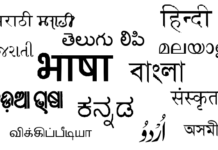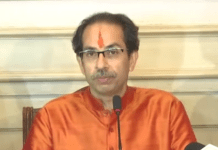These are prime examples to explain how Bollywood reinforces non-egalitarian aspects of Indian culture because if a majority of a theatre audience laughs at the misfortune of a socially inferior character who they should be empathising with, the rest of the audience too thinks they should follow this behaviour, especially if they are young. Therefore, although Bollywood should have the legal freedom to make movies showing prejudices, Bollywood should not have throwaway scenes of prejudice where it is not clear that there is even an issue with the prejudiced behaviour because that normalise such behaviour.
When I saw the movie Kabir Singh in India as a person who grew up in the UK, I was very surprised and often concerned at the reactions to certain scenes of the audience with me in theatre. Although the audience with me did not necessarily represent India, they were a sample which is potentially indicative of Indian culture as their morality and humour developed as a result of their surrounding culture.
At the start of the film, a scene shows Kabir Singh about to have an affair with an engaged woman who decides to ask him to leave. Kabir Singh then holds a knife to her throat to try to force her but then changes his mind and exits. Surprisingly, the scene of him threatening the woman was received as comedy by the audience with me in theatre. This was shocking to me because the difference in Indian and Western culture becomes clear: in the UK, the act of threatening a woman in this is way is perceived as so heinous that a person laughing at the scene would be viewed as insensitive and despicable, but the seriousness of such an offence is not yet established in India making the scene worthy of comedy.
Another example of my cultural difference to the audience was when a scene in Kabir Singh depicts a maid accidentally breaking a whiskey glass in front of Singh and Singh aggressively chasing the maid seemingly to try to assault her. The audience found this scene very funny whereas I struggled to find the comedic aspect. If I imagine Kabir Singh chasing a female colleague of his who is similar in status in the movie, I can’t imagine the audience laughing at the scene. In fact in that case, I think there would be a feeling of disgust in the audience as there was when Kabir Singh slaps his girlfriend and the audience became silent, but the audience laughing seems to illustrate the perceived inferiority of lower class people in Indian culture. Therefore, one who is low class becomes mockable when they are threatened. The audience is hysterical as if Kabir Singh is chasing a chicken to slaughter, suggesting how little the maid can be empathised with.
In the movie, Kabir Singh is a very competent senior medical student which in his university, gives him ridiculously high status and power, reflecting reality in India. Kabir Singh is perceived to be superior to his fellow classmates that he gets away with being very disrespectful to his co-students. In many scenes, he is rude and insulting to his best friend which I found to be distasteful but the audience with me found many of these scenes hilarious. For the audience to laugh at Kabir Singh abusing his best friend, they must have also viewed the character as mockable and not worthy of respect so they did not feel bad for him, suggesting that they either were or became, during the film, complicit in the unfair power dynamics in Indian academia.
These are prime examples to explain how Bollywood reinforces non-egalitarian aspects of Indian culture because if a majority of a theatre audience laughs at the misfortune of a socially inferior character who they should be empathising with, the rest of the audience too thinks they should follow this behaviour, especially if they are young. Therefore, although Bollywood should have the legal freedom to make movies showing prejudices, Bollywood should not have throwaway scenes of prejudice where it is not clear that there is even an issue with the prejudiced behaviour because that normalise such behaviour.
***
Author: Neelesh Prasad (a British teenager of Indian origin lives in Hampshire UK)
The views and opinions expressed on this website are solely those of the author(s) and other contributor(s), if any.























